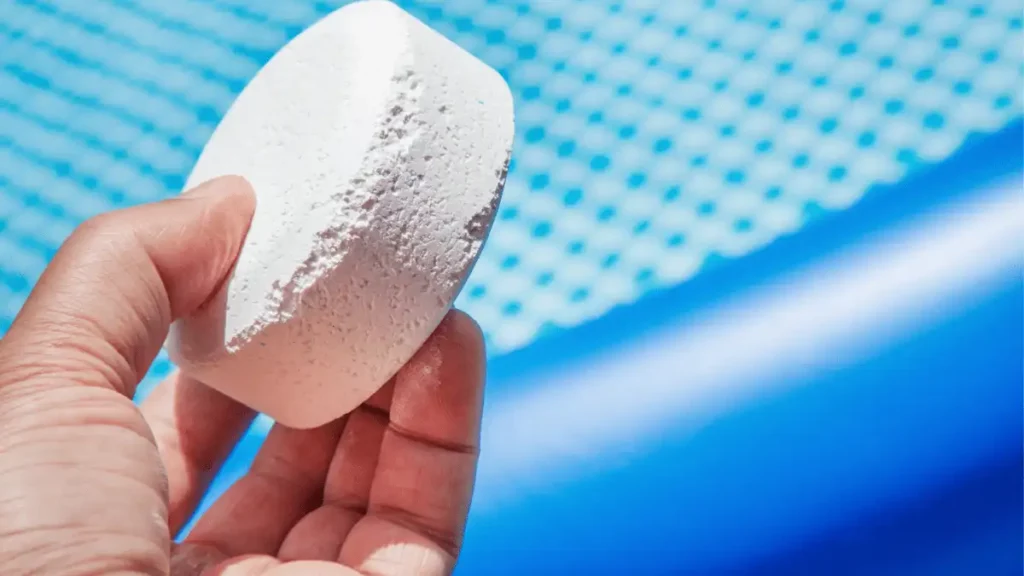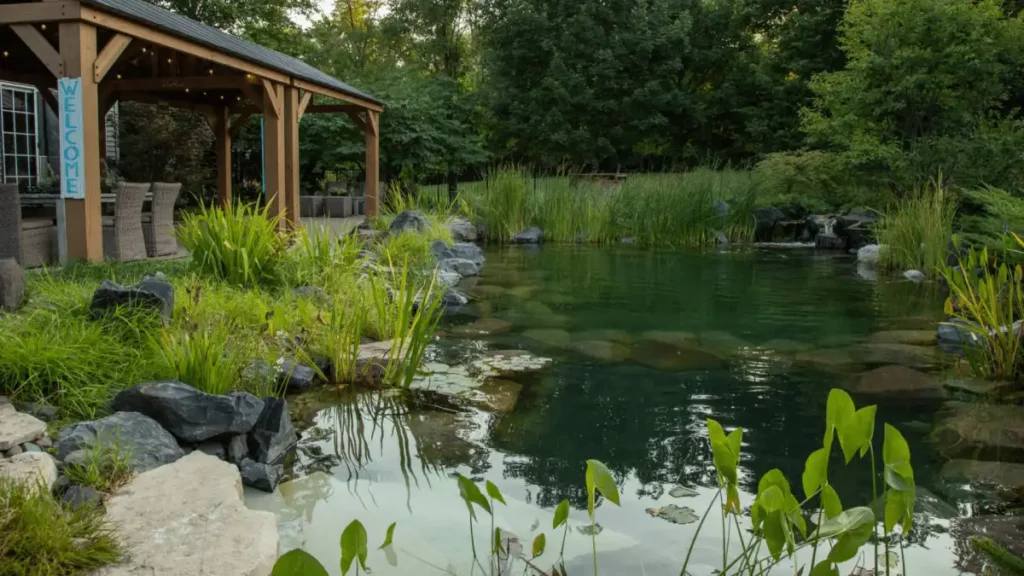The Long Term Effects of Chlorine on the Body
June 17, 2020, 0 CommentsWhen most people think of swimming pools, they think of crystal-clear water — often maintained using chlorine. While this chemical is widely used for its sanitizing properties, chlorine’s long-term effects on the body are often overlooked. At Reflections Water Gardens, we believe that beautiful outdoor living spaces should support wellness, not compromise it.
If you’ve ever wondered whether your chlorinated pool is as safe as it seems, here’s what you need to know.
What Is Chlorine?
Chlorine (Cl), a reactive halogen gas, is commonly used in water purification, especially in traditional swimming pools. While it is effective at killing bacteria, the residual exposure from chlorinated water can have a lasting impact on your body — especially with repeated or long-term contact.

Health Risks of Chlorine Exposure
Most chlorinated pools rely on chlorine to:
- Kill bacteria and algae
- Control organic debris
- Maintain water clarity
However, prolonged exposure to chlorine may result in:
|
Health Concern |
Symptoms or Risks |
|
Respiratory Irritation |
Coughing, wheezing, shortness of breath |
|
Skin Problems |
Dryness, itchiness, rashes, premature aging |
|
Eye Irritation |
Redness, burning, watery eyes |
|
Hair Damage |
Dry, brittle, and dull hair |
|
Increased Sensitivity in Children |
More vulnerable to chlorine due to delicate skin and developing lungs |
Even more concerning: according to the CDC, chlorine exposure may contribute to asthma and other chronic respiratory issues in swimmers and children.
How Chlorine Affects Skin and Hair
- Skin: Chlorine strips away the skin’s natural oils, leaving it dry, irritated, and prone to premature wrinkles.
- Hair: Over time, it weakens the hair cuticle, causing it to become brittle, dull, and prone to breakage.
Tips to Minimize Chlorine Irritation
If you or your family still use a chlorinated pool, follow these tips to reduce discomfort:
- Rinse Immediately After Swimming – Don’t let chlorine sit on your skin.
- Use Gentle Cleansers – Harsh soaps can worsen the irritation.
- Moisturize Right Away – Choose fragrance-free, high-quality moisturizers.
- Wear Chlorine-Resistant Swimwear – This provides an extra layer of protection.
- Limit Swim Time – Reduce prolonged exposure, especially for kids.

Protecting Young Swimmers
Children’s skin is thinner and more sensitive, making them especially vulnerable to chlorine. To reduce risk:
- Limit bath or swim time
- Use only mild, natural cleansers
- Apply gentle moisturizers after each bath
- Avoid swimming daily in chlorinated water
Is There a Safer, Healthier Alternative?
Yes — and it’s beautifully natural.
Natural swimming pools are chlorine-free, chemical-free ecosystems that rely on aquatic plants and biological filtration to keep water clean and clear. According to Larry Carnes, founder of Reflections Water Gardens:
“Natural pools are just as effective at preventing bacteria — and people who swim in them tend to experience significantly less skin and eye irritation.”
Natural pools aren’t just safer — they’re stunningly beautiful and environmentally friendly.
Benefits of Natural Pools vs. Chlorinated Pools
|
Feature |
Chlorinated Pool |
Natural Pool |
|
Skin & Eye Comfort |
Often irritating |
Gentle, chemical-free |
|
Environmental Impact |
Chemical-heavy |
Eco-friendly & sustainable |
|
Aesthetics |
Standard |
Organic, luxurious design |
|
Maintenance |
Regular chemical balancing |
Natural ecosystem filtration |
Keep Your Pool Dreams Alive — Go Natural
You don’t have to sacrifice health for beauty or convenience. At Reflections Water Gardens, we design and install stunning natural pools that prioritize your well-being and the planet’s health.
Whether you’re starting fresh or converting an existing chlorinated system, we offer solutions tailored to your space and vision.
Call us at (815) 955-4911 or explore our portfolio to discover the possibilities.


0 Comments